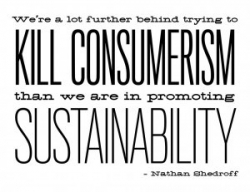On Thursday 6 November, Plan C (the transition network for sustainable materials management of the Flemish government) organized an event on which companies like Nike, Nearly New Offices (NNOF) and iFixit presented hands-on innovations to showcase business opportunities of the transition to a circular economy. Nike demonstrated its newly developed Flyknit technology that drastically reduces waste and materials. NNOF reuses and upgrades existing office furniture. By transforming your own furniture into new furniture you save money and drive down your ecological footprint. Like NNOF, iFixers mainly targets reuse and repair rather than a lifecycle phase of eco-design.
The right to repair. iFixit is an open-source online platform where you can find free repair manuals to fix your own devices. iFixit believes everyone should have the right to maintain and repair their products. Unfortunately companies like Apple don’t provide repair parts nor the information about how to repair their devices. That is why iFixit sells repair parts and tells you how to do it yourself. The basic idea behind iFixit’s mission of empowering people to fix devices is that we use too many resources to produce electronic devices with a very short lifespan.
Consumerism. A couple of days ago, the battery of my smartphone died. The sad thing is that I knew it was going to happen since it is more than three years ago that I bought it. “A pity”, a friend reacted, “you will have to buy a new one”. It is sad, yes it is. Why? Because business models like the one of Apple (whether consciously or unconsciously) force consumers to think it is natural to purchase new devices after a couple of years. Indeed, the lifespan of batteries in consumer devices is astonishing short. In addition software updates (and specifically iOS) make ‘old’ devices (like the iPhone 4 or iPad 1) incompatible with the newest versions (or apps). It is, for example, no longer possible to install Linkedin on my tablet. Concerning the battery of my smartphone, although I already knew it was going to happen in the near future, I felt frustrated when the battery died. Back to my died smartphone battery: I was not on only frustrated because it is expensive, but also because producing a smartphone is costly for our Earth system. According to the article ‘Slicing an Apple’ in the Economist, the assembly of iPhones is done by Foxconn in Shenzhen (China) but the components come from a variety of suppliers based in the United States, Taiwan, Italy, Japan and a range of unknown sources. The real cost of transport emissions is still an ‘externality’, meaning that although it affects the entire planet, it costs barely anything for the person or enterprise that creates it. Another example is e-waste. Electronic devices contain a number of nasty chemicals like lead, mercury and poly-brominated flame retardants. To recycle electronic devices, they need to be carefully dissembled in order to separate each type of material. According to iFixit, “many of the electronic devices that we think are recycled are shipped to the third world”. Why? Because labour is cheap and environmental laws concerning environmentally friendly processes of e-recycling are less strict. When e-recycling is done without environmentally friendly processes, chemicals may seep into the groundwater and plastic is often burned, sending toxic gases into the air.
Consumerism, defined by Oxford Dictionary as ‘the preoccupation of society with the acquisition of consumer goods’, has increasingly put pressure on the Earth system. Consumers hardly realize that by keeping purchasing consumer goods that are produced with too many resources and with a very short lifespan, they confirm our current societal system that is characterized by consumerism.

Power and empowerment. Can you imagine the power consumers actually have today? Because there are no incentives or penalties for producers to produce consumer goods with less resources and with a longer life span, consumers actually have the power not to purchase more consumer goods than needed. ‘So let’s strike against consumerism’, I thought when I decided to use iFixit rather than buying a new smart phone. . Because I do not trust myself opening my ‘white box’ and replacing the battery, I searched on the internet for people that could help me. It did not take me long: iFixers, only 1,4 Kilometer away from my office . The next day, I took my bike and went to iFixers. ‘you can come back in 60 minutes’ they told me. And indeed, it takes them less than an hour to replace a battery and it costs me €55. Isn’t that amazing? Moreover, I found out that I am not the only one striking against consumerism by repairing rather than buying. And the best of all:I really feel empowered and enjoyed making the choice to strike against consumerism! Thank you iFixit and iFixers to fill in the “ecosystem hole that Apple created by manufacturing a device without an end-of-life maintenance and disposal strategy”!
Relevant themes:
Public participation
Relevant tags: Sustainable lifestyles, Circular economy



























Thanks Sarah for your ideas! Consumerism such as a capitalist economy based on growth is indeed a challenge to sustainability—in a world of ever more and more and more of everything we will find ourselves running out of resources sooner or later.
Interesting initiatives are happening as regards the repair and upcycling culture. There is a lot of potential for resource savings, energy efficiency etc. Even a sector as posh as smartphones has seen this initiatives lately, if you look at e. g. Fairphone or Phonebloks.